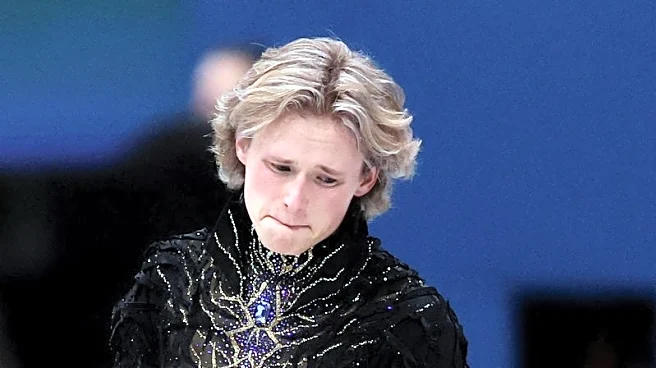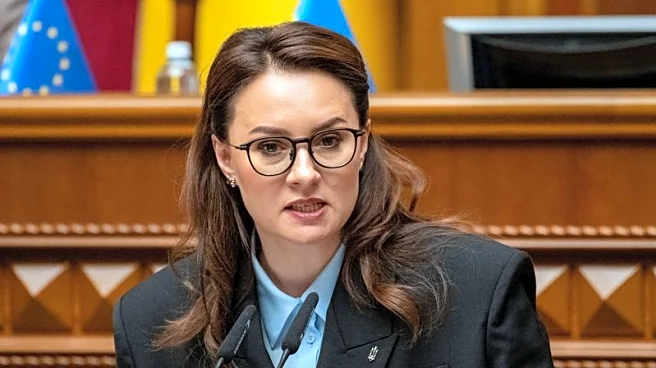Rapid Read • 8 min read
Amanda Anisimova is set to make her return to the US Open in 2025, following a significant hiatus from tennis. The American player took an eight-month break in 2023 to focus on her mental health, which led to a rebuilding phase in her career. Anisimova's comeback in 2024 was marked by a notable performance at Wimbledon, where she reached the finals but was defeated by Iga Swiatek. As the ninth seed, Anisimova will face Kimberly Birrell from Australia in the first round of the women's singles tournament at the US Open. The match is scheduled for August 26 at Louis Armstrong Stadium.
AD
Anisimova's return to the US Open is significant for both her career and the broader tennis community. Her journey highlights the importance of mental health in sports, and her comeback serves as an inspiration to athletes facing similar challenges. The US Open is a major event in the tennis calendar, and Anisimova's participation adds to the competitive field, potentially influencing the dynamics of the tournament. Her performance could impact her ranking and future opportunities in the sport, while also drawing attention to the mental health discourse in athletics.
Anisimova's match against Kimberly Birrell will be closely watched, as it marks her first appearance at the US Open since her hiatus. Depending on her performance, Anisimova could advance further in the tournament, facing higher-ranked opponents and gaining more exposure. The outcome of her matches will determine her standing in the tennis world and could lead to further discussions on mental health support for athletes. Fans and analysts will be keen to see how Anisimova's return influences her career trajectory and the competitive landscape of women's tennis.
Anisimova's return to professional tennis after prioritizing her mental health underscores a growing trend among athletes to address psychological well-being. This shift may lead to increased support systems within sports organizations and a reevaluation of how mental health is integrated into athlete training and development. Anisimova's story could inspire other athletes to seek help and prioritize their mental health, potentially leading to broader changes in sports culture and policies.
AD
More Stories You Might Enjoy












